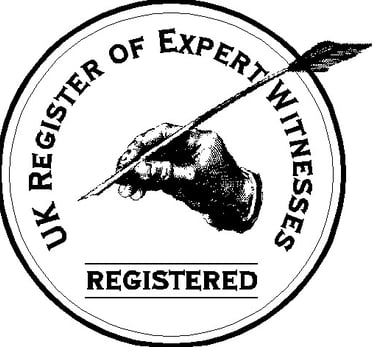A Wee Bit Over The Limit
Understanding the nuances of the the urine sample procedure.
7/22/20252 min read
Understanding the Urine Procedure in Drink Drive Cases: MG DD/B and MG DD/C
In cases where a driver is suspected of being over the prescribed alcohol limit, police officers in the UK typically rely on evidential breath testing at the station. However, there are circumstances in which an alternative biological sample is sought—either blood or urine. The choice between these is ultimately at the officer’s discretion. This article explores the implications when urine is taken, with reference to MG DD/B and MG DD/C procedures.
As an expert witness in forensic toxicology, I am often instructed in cases where the evidential sample is urine. It is important for legal professionals to understand both the scientific and procedural nuances associated with this type of evidence.
Urine: A Suboptimal Yet Legally Accepted Matrix
Unlike blood or breath, urine is a pooled sample, representing a cumulative mixture of an individual’s alcohol over time. It does not provide a real-time snapshot of an alcohol level like blood or breath. For instance – a urine alcohol level may be higher than blood if alcohol was consumed earlier in the day and vice versa if alcohol has just been consumed. This characteristic makes it scientifically inferior in determining the individual’s alcohol level at a specific moment, such as the time of driving. Nonetheless, the Road Traffic Act 1988 permits its use under certain conditions.
The Procedure: Two Samples Within One Hour
The MG DD/B and MG DD/C forms outline the urine sample procedure. The subject is required to provide two specimens of urine within one hour. The first sample is discarded, and the second used for analysis. There is no minimum statutory interval between these samples, but the procedure is designed to empty the bladder of previously pooled urine via the first sample. The second—collected within an hour—should reflect alcohol levels closer to the time of sampling.
To facilitate this, the subject may be offered water to encourage timely urination. However, if the two samples are not distinct—either by timing, insufficient voiding or container contamination—the evidential value of the result may be called into question.
Importance of the Second Sample and Legal Precedent
There is case law confirming the importance of obtaining a second distinct sample. The courts have held that where this is not achieved, any resulting calculation may be unsafe. For example, in Over v Musker [1985], failure to obtain a distinct second sample rendered the evidence unreliable. The principle is further supported by Section 15(5) of the Road Traffic Offenders Act 1988, which states that no person shall be convicted on a urine specimen unless two have been provided, and the second has been analysed.
This procedural safeguard exists in part to enable retrospective calculations, such as the “hip flask” defence. Having a known interval between voids allows a forensic toxicologist to apply pharmacokinetic modelling to determine likely alcohol concentrations at earlier times, including the time of driving.
Expert Assistance in Challenging Urine Evidence
ATXpert can assist your client by:
Reviewing police procedure for compliance with MG DD/B or MG DD/C
Assessing whether the two samples are distinct and properly timed
Conducting back-calculations where timings are known
Evaluating the reliability of the results, particularly in the context of alcohol elimination kinetics
Advising where procedural or scientific issues render the evidence unreliable
Given the inherent limitations of urine as a forensic matrix, any deviation from strict procedural compliance significantly affects the prosecution's case. Early expert involvement can help identify such flaws and provide clarity in complex cases.
For further information or to discuss a specific case, please don’t hesitate to get in touch.
ATXpert is a limited company registered at Suite A, 82 James Carter Road, Mildenhall, Bury St. Edmunds, IP28 7DE
Registration number 15875812
Hiscox professional indemnity insured
CJSM affiliated


